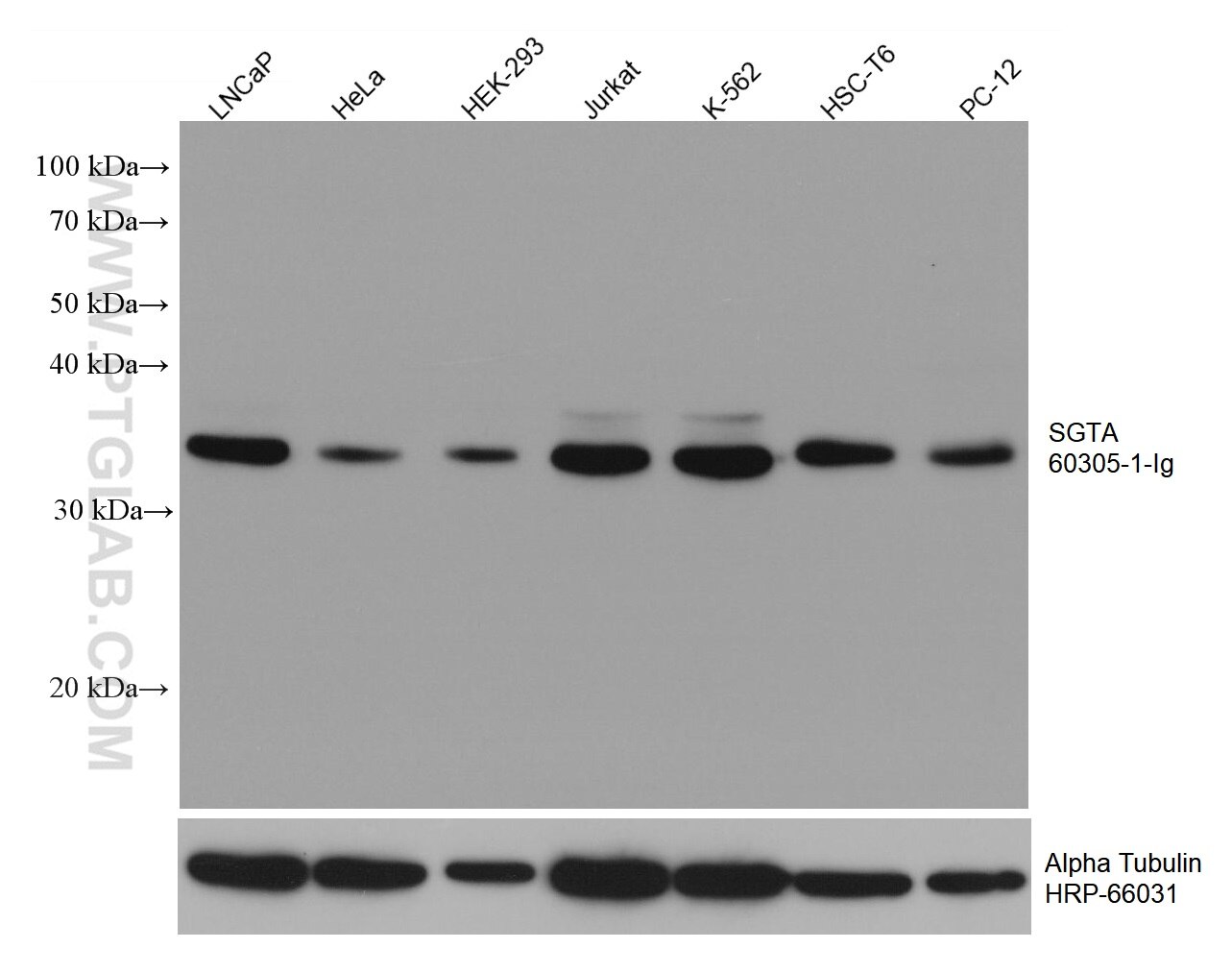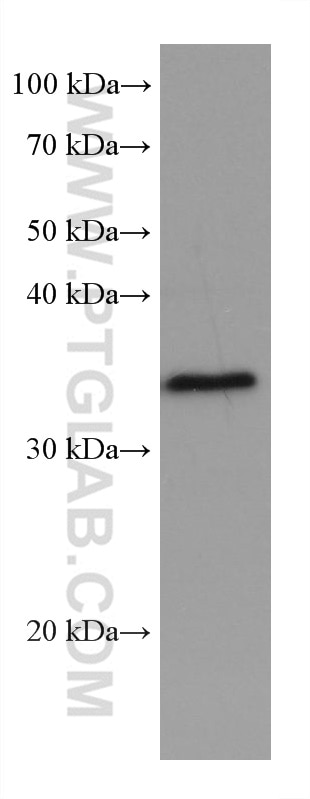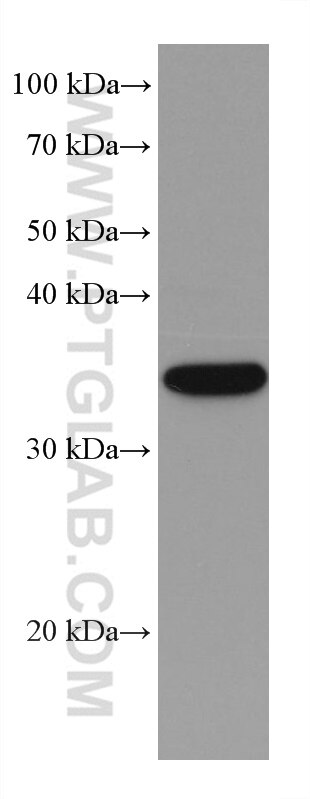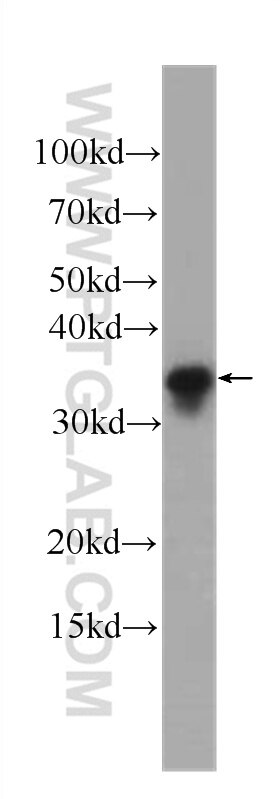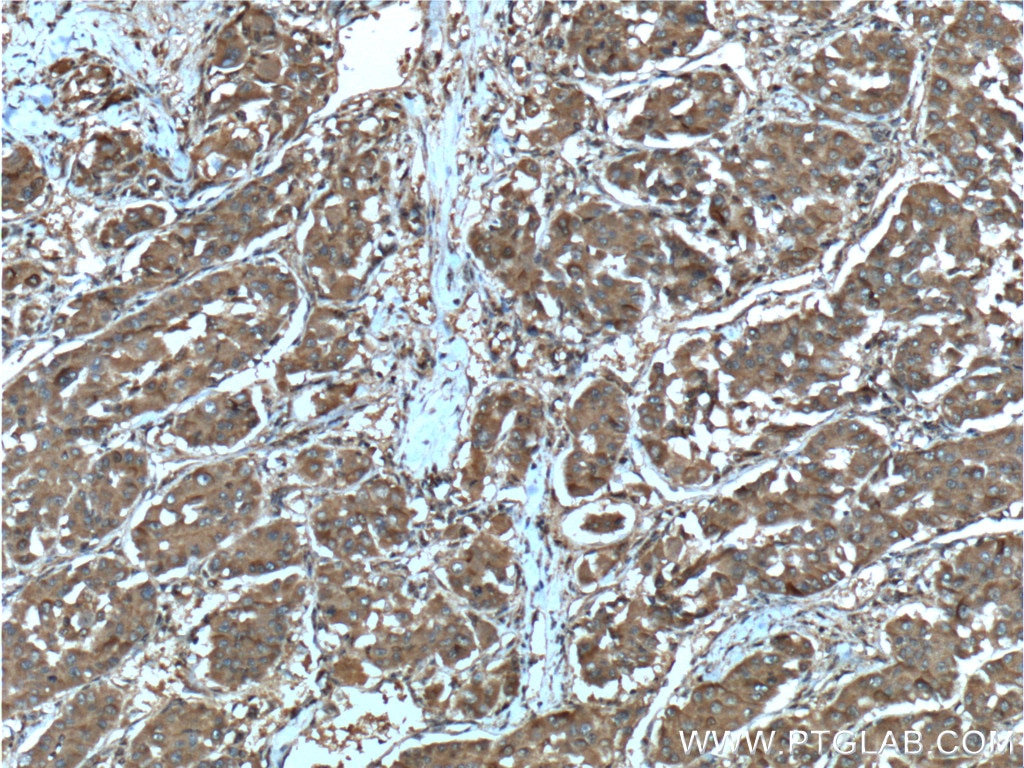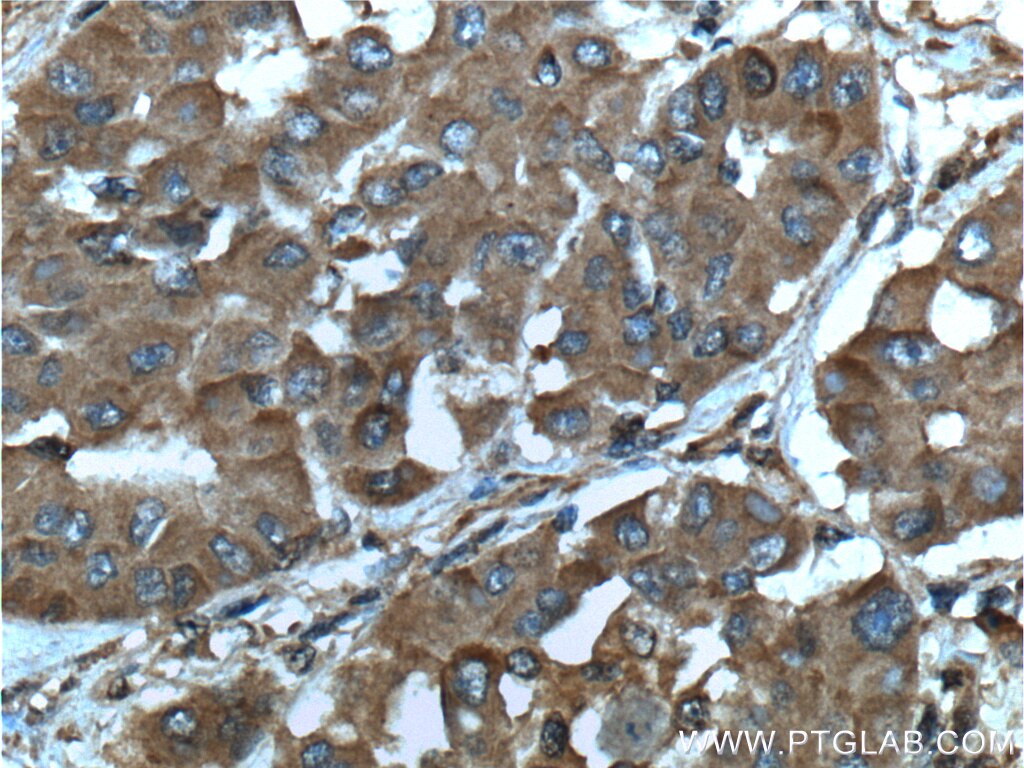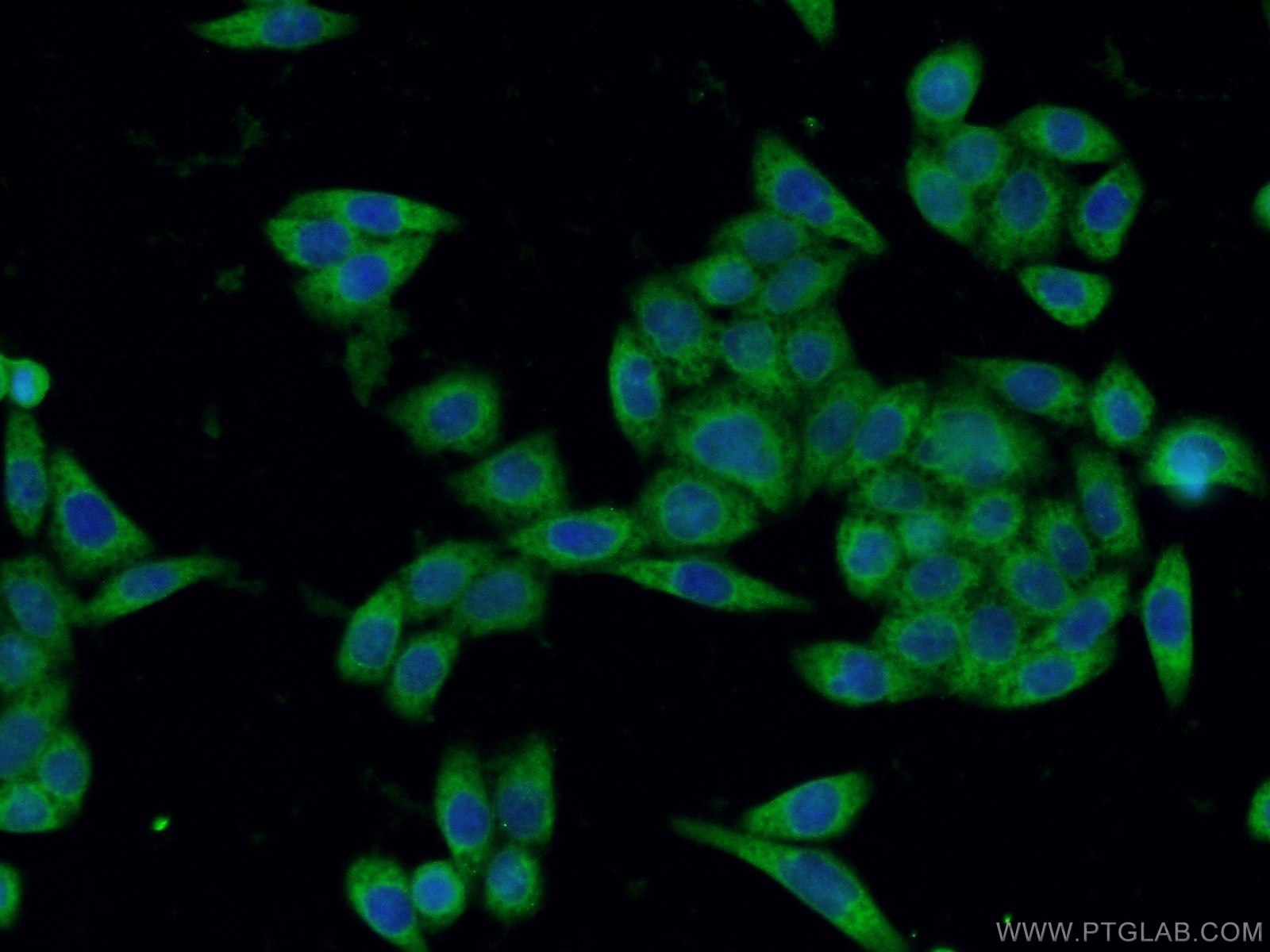SGTA Monoklonaler Antikörper
SGTA Monoklonal Antikörper für WB, IHC, IF/ICC, ELISA
Wirt / Isotyp
Maus / IgG2b
Getestete Reaktivität
human, Maus, Ratte
Anwendung
WB, IHC, IF/ICC, ELISA
Konjugation
Unkonjugiert
CloneNo.
3B10B11
Kat-Nr. : 60305-1-Ig
Synonyme
Geprüfte Anwendungen
| Erfolgreiche Detektion in WB | LNCaP-Zellen, fetales humanes Hirngewebe, HEK-293-Zellen, HeLa-Zellen, Jurkat-Zellen, K-562-Zellen, Neuro-2a-Zellen, NIH/3T3-Zellen, PC-12-Zellen |
| Erfolgreiche Detektion in IHC | humanes Leberkarzinomgewebe Hinweis: Antigendemaskierung mit TE-Puffer pH 9,0 empfohlen. (*) Wahlweise kann die Antigendemaskierung auch mit Citratpuffer pH 6,0 erfolgen. |
| Erfolgreiche Detektion in IF/ICC | HeLa-Zellen |
Empfohlene Verdünnung
| Anwendung | Verdünnung |
|---|---|
| Western Blot (WB) | WB : 1:5000-1:50000 |
| Immunhistochemie (IHC) | IHC : 1:20-1:200 |
| Immunfluoreszenz (IF)/ICC | IF/ICC : 1:20-1:200 |
| It is recommended that this reagent should be titrated in each testing system to obtain optimal results. | |
| Sample-dependent, check data in validation data gallery | |
Produktinformation
60305-1-Ig bindet in WB, IHC, IF/ICC, ELISA SGTA und zeigt Reaktivität mit human, Maus, Ratten
| Getestete Reaktivität | human, Maus, Ratte |
| Wirt / Isotyp | Maus / IgG2b |
| Klonalität | Monoklonal |
| Typ | Antikörper |
| Immunogen | SGTA fusion protein Ag1475 |
| Vollständiger Name | small glutamine-rich tetratricopeptide repeat (TPR)-containing, alpha |
| Berechnetes Molekulargewicht | 34 kDa |
| Beobachtetes Molekulargewicht | 34-37 kDa |
| GenBank-Zugangsnummer | BC008885 |
| Gene symbol | SGTA |
| Gene ID (NCBI) | 6449 |
| Konjugation | Unkonjugiert |
| Form | Liquid |
| Reinigungsmethode | Protein-A-Reinigung |
| Lagerungspuffer | PBS with 0.02% sodium azide and 50% glycerol |
| Lagerungsbedingungen | Bei -20°C lagern. Nach dem Versand ein Jahr lang stabil Aliquotieren ist bei -20oC Lagerung nicht notwendig. 20ul Größen enthalten 0,1% BSA. |
Hintergrundinformationen
Small glutamine-rich tetratricopeptide repeat-containing protein alpha (SGTA) is a steroid receptor molecular co-chaperone critical in a range of biological processes, including viral infection, cell division, mitosis, and cell cycle checkpoint activation. Overexpression of SGTA has been found in various cancers, including prostate/ovary/testis/liver/lung cancer.
Protokolle
| PRODUKTSPEZIFISCHE PROTOKOLLE | |
|---|---|
| WB protocol for SGTA antibody 60305-1-Ig | Protokoll herunterladen |
| IHC protocol for SGTA antibody 60305-1-Ig | Protokoll herunterladenl |
| IF protocol for SGTA antibody 60305-1-Ig | Protokoll herunterladen |
| STANDARD-PROTOKOLLE | |
|---|---|
| Klicken Sie hier, um unsere Standardprotokolle anzuzeigen |
